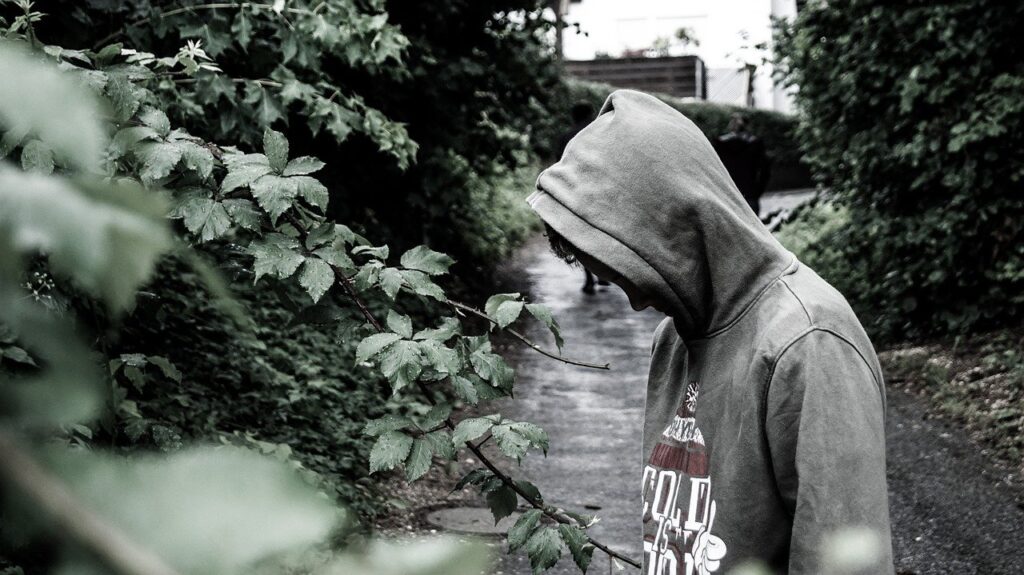Being a teenager generally means a time of exploration, growth, and even a bit of social awkwardness. For the fortunate, this period of development is spent creating lasting memories of going to the movies with friends, trips to the mall, birthday parties, and sleepovers. For some teens however, this time is marked by homelessness, uncertainty, hunger, and secrecy. According to the National Conference of State Legislatures, “On any given night, approximately 41,000 unaccompanied youth ages 13-25 experience homelessness.” Given that teens and young adults are a sensitive population, these numbers are troubling. Even more so than the adult homeless population, children are at higher risk for trafficking and sexual violence.
When children and teens experience homelessness, their typical course of development is often stunted by the overwhelming need to survive their current living conditions. Without proper guidance and support, homeless youth also struggle with decision-making, planning, and peer pressure. The facts are difficult to face.
- According to the National Coalition for the Homeless, “Homeless youth are individuals under the age of eighteen who lack parental, foster, or institutional care.”
- Over 80% of homeless children have experienced some form of violence.
- Homeless children are more likely to have behavioral, emotional, substance abuse and health issues as compared with those with stable housing.
- A third of the homeless population is estimated to be 24 years and younger.
- The youth LGBTQ population experiences homelessness more often than any other group at an estimated 40%.
- Half of all homeless teens have been in juvenile detention centers or corrective programs.
Causes of youth homelessness are multifactorial and often due to no fault of their own. For those in the foster care system, aging out of state care without income or transitional living becomes a major factor in homelessness. Parental neglect, abuse, and lack of financial resources are among the main causes of teen homelessness as well.
What you can do to help.
- Become a tutor or mentor. Homelessness affects children’s performance at school. Giving one on one support communicates value. Remember, the person who gives is the first to benefit.
- Educate your children about the homeless. Show your children the meaning of empathy by participating in food and clothing drives.
- Remember the holidays. For most children and teens, the holidays mean warm meals, gifts, and family. These simple desires are often missed by homeless youth. The holidays are an excellent time do donate warm clothes, toys, and gifts.
- Host a fundraiser. This may seem like a significant task to take on, but one with the potential to build a sense of community support. Work in connection with organizations such as your local Red Cross, Eden’s Shift Inc, Schools, parks, and even virtual events are an option as well. Be sure to create a checklist and set a goal to strive for. Visit sites such as The Homeless Period Project for ideas including barbeques, parties, and social networking.
- Educate yourself about the homeless by reading the Annual Homeless Assessment Report to Congress. This report provides key findings in homelessness including families with children and unaccompanied youth.
Resources in or near Brockton, MA
- Bridge Over Troubled Waters is an organization that provides supports for youth ages 14-24. They have a medical van that provides free medical services and an emergency survival kit. Additionally, they offer overnight shelter for runaways, counseling, and transitional living programs.
- South Shore Continuum of Care provides young adults, ages 18-24 with essential services such as assistance with applying for state funded housing, domestic violence support, and needs assessments.
- The Home for Little Wanderers is a place youth aging out of the foster care can prepare to transition to a life on their own. They take a proactive approach towards homelessness by teaching skills such as wellness, and networking, along with providing resources for job programs, education, and parenting. Their site highlights a number of success stories of teens who have successfully transitioned to a life on their own.

Citations/References
www.ncsl.org/research/human-services/homeless-and-runaway-youth.
www.nationalhomeless.org/factsheets/youth.pdf
www.stopchildhomelessness.org/solutions/
